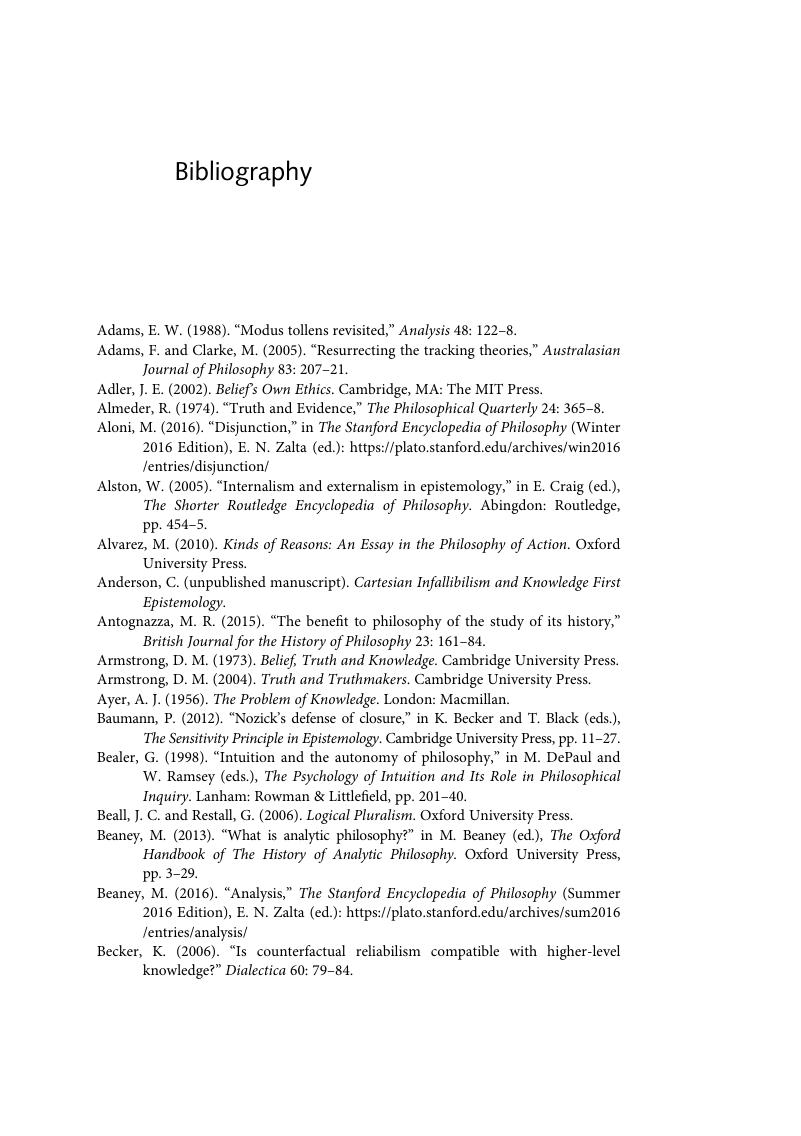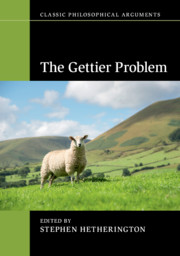Book contents
- The Gettier Problem
- Classic Philosophical Arguments
- The Gettier Problem
- Copyright page
- Contents
- Contributors
- Preface
- Introduction: Meet the Gettier Problem
- 1 The Gettier Problem and Fallibilism
- 2 Epistemic Closure and Post-Gettier Epistemology of Reasoning
- 3 Gettier Cases and Evidence
- 4 The Gettier Problem and Externalism
- 5 The Gettier Problem and Context
- 6 The Gettier Problem and Epistemic Luck
- 7 The Sensitivity Response to the Gettier Problem
- 8 The Gettier Problem and Intellectual Virtue
- 9 Knowledge and Wisdom
- 10 The Gettier Problem and the Program of Analysis
- 11 Intuition in the Gettier Problem
- 12 Experimental Epistemology and “Gettier” Cases
- 13 The Gettier Problem’s Explicability Problem
- Bibliography
- Index
- References
Bibliography
Published online by Cambridge University Press: 05 November 2018
- The Gettier Problem
- Classic Philosophical Arguments
- The Gettier Problem
- Copyright page
- Contents
- Contributors
- Preface
- Introduction: Meet the Gettier Problem
- 1 The Gettier Problem and Fallibilism
- 2 Epistemic Closure and Post-Gettier Epistemology of Reasoning
- 3 Gettier Cases and Evidence
- 4 The Gettier Problem and Externalism
- 5 The Gettier Problem and Context
- 6 The Gettier Problem and Epistemic Luck
- 7 The Sensitivity Response to the Gettier Problem
- 8 The Gettier Problem and Intellectual Virtue
- 9 Knowledge and Wisdom
- 10 The Gettier Problem and the Program of Analysis
- 11 Intuition in the Gettier Problem
- 12 Experimental Epistemology and “Gettier” Cases
- 13 The Gettier Problem’s Explicability Problem
- Bibliography
- Index
- References
Summary

- Type
- Chapter
- Information
- The Gettier Problem , pp. 235 - 251Publisher: Cambridge University PressPrint publication year: 2018



